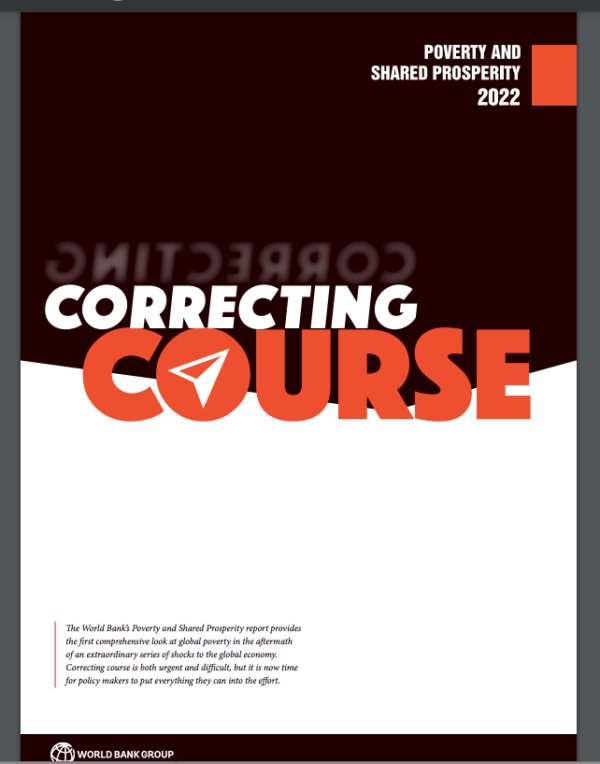The World Bank, headquartered in Washington, D.C., finds that despite the world’s wealth global poverty has increased and that by 2030 nearly 600 million people will struggle on less than $2.15 a day. A new study by the bank that is jointly owned by 187 countries and lends money to poorer nations to improve their economies and raise living standards found that Covid-19 dealt the biggest setback to global poverty-reduction efforts since 1990. The study also found that the war in Ukraine threatens to make the situation even worse.

The Word Bank”™s “Poverty and Shared Prosperity” report estimates that 70 million people were pushed into extreme poverty in 2020, the largest one-year increase since global poverty monitoring began in 1990. As a result, by the end of 2020, an estimated 719 million people subsisted on less than $2.15 a day.
The report found that Sub-Saharan Africa now accounts for 60% of all people in extreme poverty, an estimated 389 million, more than any in any other region of the world. The region”™s poverty rate is about 35%, the world”™s highest.
“Progress in reducing extreme poverty has essentially halted in tandem with subdued global economic growth,” said World Bank Group President David Malpass. “Of concern to our mission is the rise in extreme poverty and decline of shared prosperity brought by inflation, currency depreciations, and broader overlapping crises facing development. It means a grim outlook for billions of people globally.”
The report found that the pandemic increased economic inequality, with the poorest 40% of the world’s population losing twice the income that was lost by the wealthiest 20% of the population.
The World Bank said that national policy reforms can help restart progress in reducing poverty and increased global cooperation among nations also will be necessary. It said that investments in education, research and development, and infrastructure projects need to be made today. It called for more energy subsidies for low- and middle-income sectors and said that property taxes and carbon taxes can help raise revenue without hurting the poorest along with broadening the base of personal and corporate income taxes.
“Fiscal policy is only part of the policy solution to addressing poverty and inequality,” the World Bank said. “In fact, many other policy choices, such as labor market regulations, affect personal incomes and have a large impact on welfare. There is also a strong relationship between fiscal policy and instruments such as monetary policy. In the context of rising inflation across the world, governments may want to expand fiscal spending to support households. However, expansive fiscal policy may work at cross-purposes with monetary policy oriented to tame inflation. If inflation continues to rise and recovery continues to stall, this tension will increase.”



















